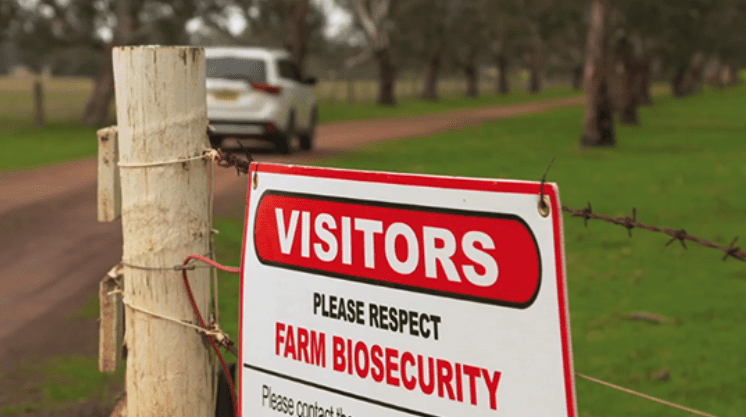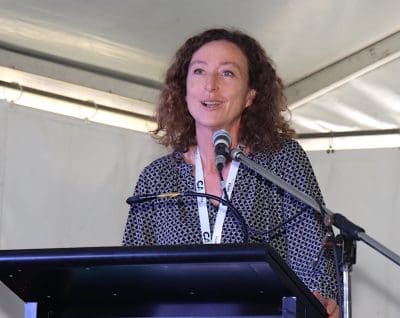Australian cattle industry leaders have called for tougher penalties for biosecurity breaches, saying fines that amount to “slaps on the wrist” are not good enough to protect the $80 billion agriculture sector.
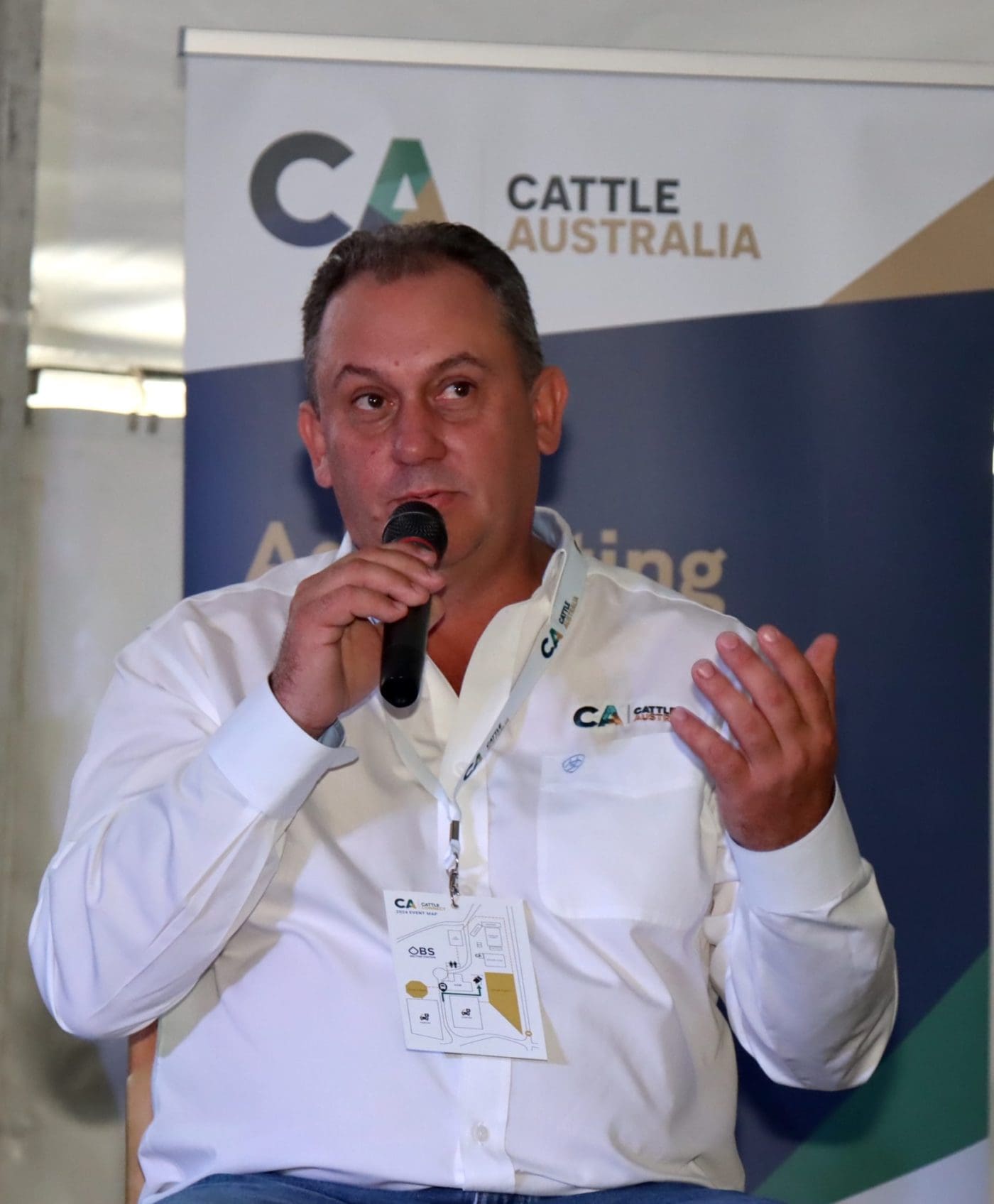 “Not slaps on the wrist, not warnings,” Cattle Australia president Garry Edwards told a session focusing on biosecurity at last week’s Cattle Connect conference near Tamworth.
“Not slaps on the wrist, not warnings,” Cattle Australia president Garry Edwards told a session focusing on biosecurity at last week’s Cattle Connect conference near Tamworth.
“The more we have significant penalties attached to this the greater the deterrent.”
But equally that meant the industry must also be prepared to accept tougher penalties on themselves or their neighbours or friends for any breaches.
More than 303,000 biosecurity risk items were stopped at Australian borders in 2023, moderator Romy Carey from the Northern Territory Cattlemen’s Association told the session.
22,000 international travellers were fined over the same period for biosecurity breaches, with 22 of those having visas cancelled.
The audience was also told that the maximum fine for a biosecurity breach had recently been lifted to $6260.
Northern Territory cattle producer and National Farmers Federation director David Connolly said that level of deterrent did not pass the “pub test”.
“It is an $86 billion industry, and it has got a fine of $6250.
“The fines and the disincentive to do the wrong thing is just not high enough.”
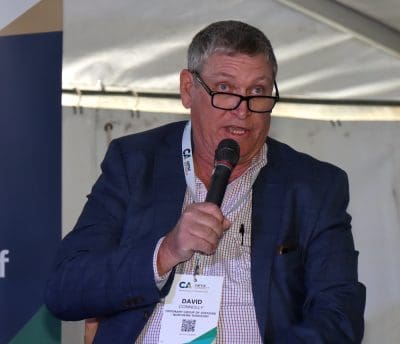 He said as a producer he was “extremely uncomfortable” about the number of regular illegal incursions that occurred across property boundaries in northern Australia.
He said as a producer he was “extremely uncomfortable” about the number of regular illegal incursions that occurred across property boundaries in northern Australia.
“I am very uncomfortable about these incursions, I think there are significant biosecurity threats in these actions, and there needs to be consequences for these illegal actions.
“Talking tough is not good enough, you actually have be tough about it, the Government needs to be sending strong messages around the penalties that they’re delivering.”
Representatives from the Department of Agriculture, Fisheries and Forestry said they have a team of 1800 full time equivalent people working on biosecurity risks, which included 86 ports of entry around Australia, with 20 million travellers and 120 million declared items coming into the country each year.
“I actually think that given the volumes and borders we live with, we’re in a pretty good position and it does reflect the collective effort by all of us,” DAFF Assistant Secretary, Biosecurity Policy and Response Branch, Jo Laduzko, said.
“There are always risks, there are always threats, but the outcomes come could be considerably worse.”
Mr Edwards and Mr Connolly said they believed most producers would support the Government implementing tougher fines and tougher regulations to deter biosecurity breaches.
“The critical thing is that we have to find a way to fund and frankly have bigger deterrents,” Mr Edwards said.
Mr Connolly said he believed there was also a need for greater resourcing of biosecurity surveillance across northern Australia.
Tipperary Station, the 4000 square kilometre property he manages in the Northern Territory, has previously had vector surveillance points.
But Mr Connolly said the property had not been actively monitored for more than five years.
“Nobody from the department is coming out to the station to look at these points,” he said.
“The money is going somewhere, (but) it is not coming to Tipperary to those vector surveillance points.”
Garry Edwards said the surveillance testing in the north should a be major priority for every Australian producer because a northern biosecurity outbreak would have consequences for every single market.
“If something comes in in the north, it will affect every producer right down to the tip of Tasmania.”
Discussion also focused on the use of footbaths in airports to both deactivate disease and to increase awareness of biosecurity issues.
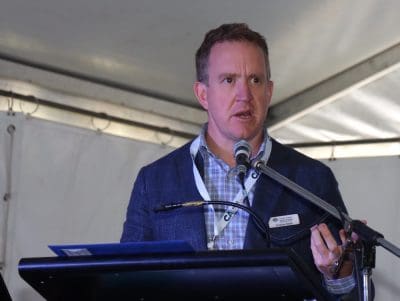 Dr Brant Smith, first assistant secretary, DAFF Biosecurity Animal Division, said having footbaths at airports was really important when there were high loads of virus in the environment, but such measures cost millions of dollars and were dialed up or down based on level of risk.
Dr Brant Smith, first assistant secretary, DAFF Biosecurity Animal Division, said having footbaths at airports was really important when there were high loads of virus in the environment, but such measures cost millions of dollars and were dialed up or down based on level of risk.
Garry Edwards said he believed producers could collective take a national biosecurity lead by using voluntary boot and shoe washes on their farms.
“If people see us do that and voluntarily cleaning our shoes that draws attention to it, and if people in the industry aren’t prepared to be proactive and look to have your shoes cleaned and what have you, how are we going to expect the general person that is going to Bali or wherever else to want to do it?”

